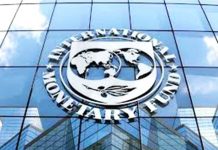The World Bank has committed to closing the US$30 million funding gap needed to complete the Food Systems Resilience Programme (FSRP), aimed at enhancing irrigation farming and boosting agricultural productivity.
Regional Vice President for Western and Central Africa at the World Bank, Ousmane Diagana announced this during his visit to the Kpong Irrigation Scheme and the Kpong Left Bank Irrigation System.
“There’s a US$30 million funding gap to see the full completion of this project. We’re a long-standing partner for Ghana in every area… and we will be happy, of course, to consider adding financing if necessary. So, this is something that is absolutely possible,” Ousmane Diagana stated.
Despite Ghana’s irrigable land being estimated at 1.9 million hectares, only 1.6% is equipped for irrigation, far below the West and Central Africa average of 13.9%, according to World Bank data. This limited irrigation capacity poses a challenge to Ghana’s agricultural and food resilience.
The Regional Vice President for Western and Central Africa at the World Bank emphasised the critical role of agriculture in job creation and income generation, saying “No country can develop without investing in its agriculture.”
He urged the government to make sustainable investments in smart agriculture to enhance productivity and reduce reliance on imported rice, maize and vegetables.
He commended the six tonnes per hectare yield achieved at the Asutuare and Kpong irrigation projects, describing it as a positive benchmark.
“If you do this type of investment and are able to achieve close to seven tonnes per hectare, then the likelihood of the project achieving its impact is extremely high,” he noted.

Ousmane Diagana also highlighted Ghana’s strategic location as a gateway to other countries and reiterated the World Bank’s support for scaling up irrigation initiatives.
The Project Coordinator of FSRP, Osei Owusu Agyeman, explained that the programme integrates adaptive mobility and sustainable interventions to help vulnerable households, farmers, and communities withstand shocks in food production and distribution.
He noted that with US$22.5 million from the World Bank, the FSRP has modernised major irrigation schemes across Ghana, enhancing food security and job creation.
The Secretary of the Investors Cooperative at the Kpone Left Bank Irrigation System, Priscilla Adom Tawiah lauded the project’s impact on youth and women in agriculture.
“We have brought a lot of economic development to the people,” she said.
She added, “If there is a dedicated matching grant, we will be able to grow our businesses faster, transform the left bank and turn it into an agribusiness tourist site for Ghana and beyond.”









